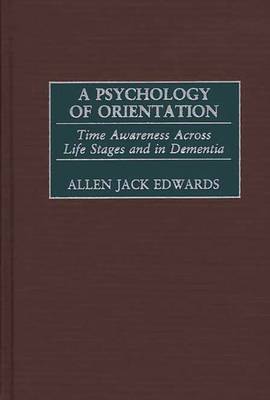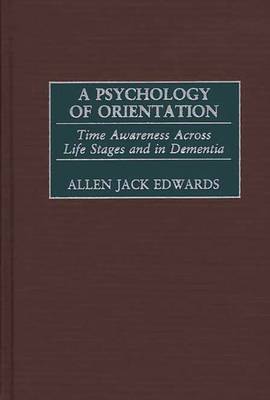
- Retrait gratuit dans votre magasin Club
- 7.000.000 titres dans notre catalogue
- Payer en toute sécurité
- Toujours un magasin près de chez vous
- Retrait gratuit dans votre magasin Club
- 7.000.000 titres dans notre catalogue
- Payer en toute sécurité
- Toujours un magasin près de chez vous
A Psychology of Orientation
Time Awareness Across Life Stages and in Dementia
Allen Jack Edwards
Livre relié | Anglais
161,45 €
+ 322 points
Description
Psychological research using time as a variable has been extensive since the era of Wundt and Ebbinghaus. The care of and research on dementia patients highlights a unique need for understanding and applying the concepts of time and space. This volume, unique in its development of a model for time-space orientation, proposes that understanding the needs of these patients is increased by consideration of the ^Idis^Rorientation caused by dementia. Included is a review of the history of time and time measurement, a survey of psychological literature using time as a variable across the life span, and a model of time orientation applied to persons who have developed dementia.
Conditions leading to dementia are described, and a rationale proposed for the effects of time/space disorientation in behavioral disturbances. Suggestions for applications and future research are included. Scholars and researchers interested in time awareness and orientation, as well as professionals in psychology, sociology, and gerontology caring for dementia patients, will find the material here useful.Spécifications
Parties prenantes
- Auteur(s) :
- Editeur:
Contenu
- Nombre de pages :
- 296
- Langue:
- Anglais
Caractéristiques
- EAN:
- 9780275975562
- Date de parution :
- 30-03-02
- Format:
- Livre relié
- Format numérique:
- Genaaid
- Dimensions :
- 164 mm x 242 mm
- Poids :
- 576 g







